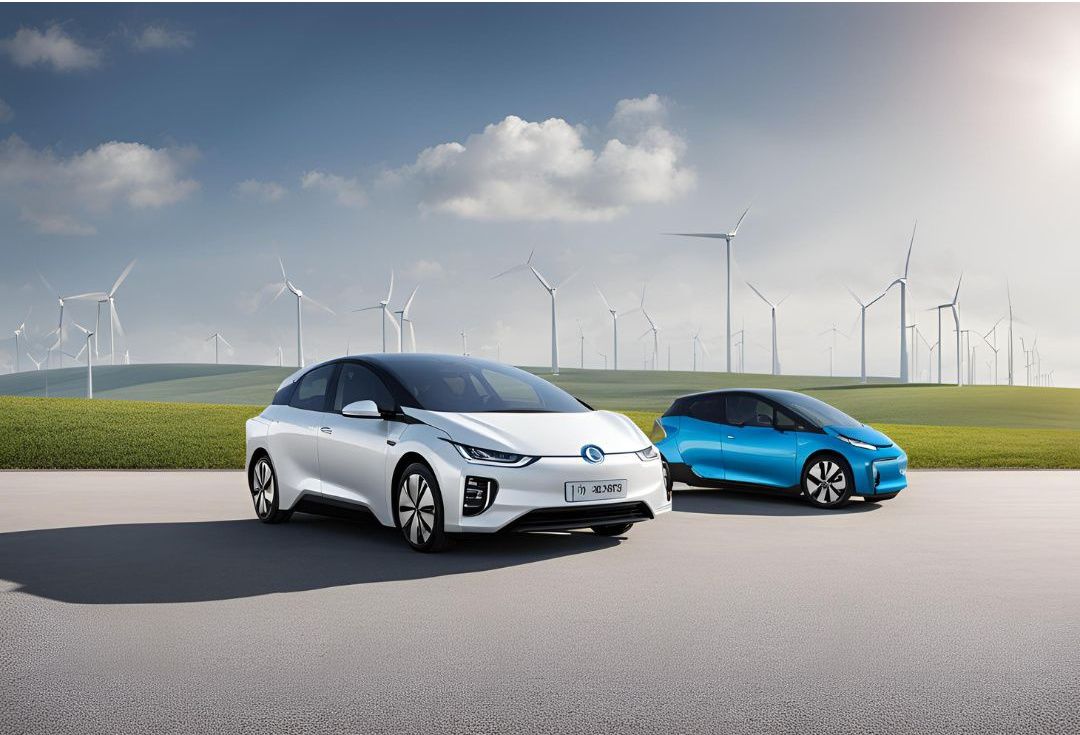
The Future: Electric Cars vs. Hydrogen Cars
With increasing attention towards reducing carbon emissions and combating climate change, electric vehicles (EVs) and hydrogen vehicles (HVs) have emerged as two promising alternatives to traditional combustion-engine vehicles. Both offer potentially more sustainable solutions but come with distinct environmental advantages and disadvantages. This article explores the environmental implications of each technology to understand which might represent a greener choice.
Electric Cars (EVs)
-
Energy Source and Emissions:
Electric cars operate using energy stored in batteries. Their environmental impact largely depends on the source of this energy. When electricity comes from renewable sources such as wind or solar, EVs have a significantly reduced carbon footprint. However, if the electricity is generated from fossil fuels, the environmental benefits of EVs can be considerably diminished. Additionally, the production and disposal of EV batteries raise environmental concerns, including resource extraction and potential pollution.
-
Battery Production and Disposal:
The production of batteries for EVs involves the extraction of minerals like lithium, cobalt, and nickel, which can have significant environmental and social impacts. Extracting these materials can lead to habitat destruction, water pollution, and human rights issues. Moreover, managing and recycling batteries are critical challenges, although advances in recycling technologies are working to mitigate these impacts.
-
Energy Efficiency:
EVs are generally very efficient in terms of energy conversion and fuel consumption. The energy efficiency of electric cars surpasses that of internal combustion vehicles, and the energy losses during electricity production are balanced by the efficiency of the electric motor.
Hydrogen Cars (HVs)
-
Energy Source and Emissions:
Hydrogen cars use fuel cells that convert hydrogen into electricity, with water being the only significant byproduct. If hydrogen is produced using renewable sources, the carbon footprint of HVs can be very low. However, most hydrogen is currently produced through processes that use fossil fuels, which reduces the overall environmental benefits.
-
Production and Infrastructure:
Hydrogen production, especially through conventional methods like methane reforming, can be carbon-intensive. Additionally, the infrastructure required for hydrogen refueling is still under development and requires significant investment. This can lead to additional environmental costs and delays in large-scale adoption.
-
Energy Efficiency:
Hydrogen fuel cells tend to have lower energy efficiency compared to electric batteries. The hydrogen production chain, from production to transportation and refueling, involves significant energy losses. This can limit the environmental benefits relative to EVs, especially if hydrogen is not produced sustainably.
Both electric and hydrogen vehicles offer intriguing prospects for more sustainable mobility, but each comes with specific environmental advantages and challenges. EVs, when charged with renewable energy, tend to have a lower environmental impact over their lifecycle. However, the extraction and management of batteries remain significant issues. On the other hand, HVs could offer substantial benefits if hydrogen is produced sustainably and if refueling infrastructure continues to develop. The choice between the two technologies will depend on addressing these challenges and the gradual integration of both solutions into our transition toward a greener future.




